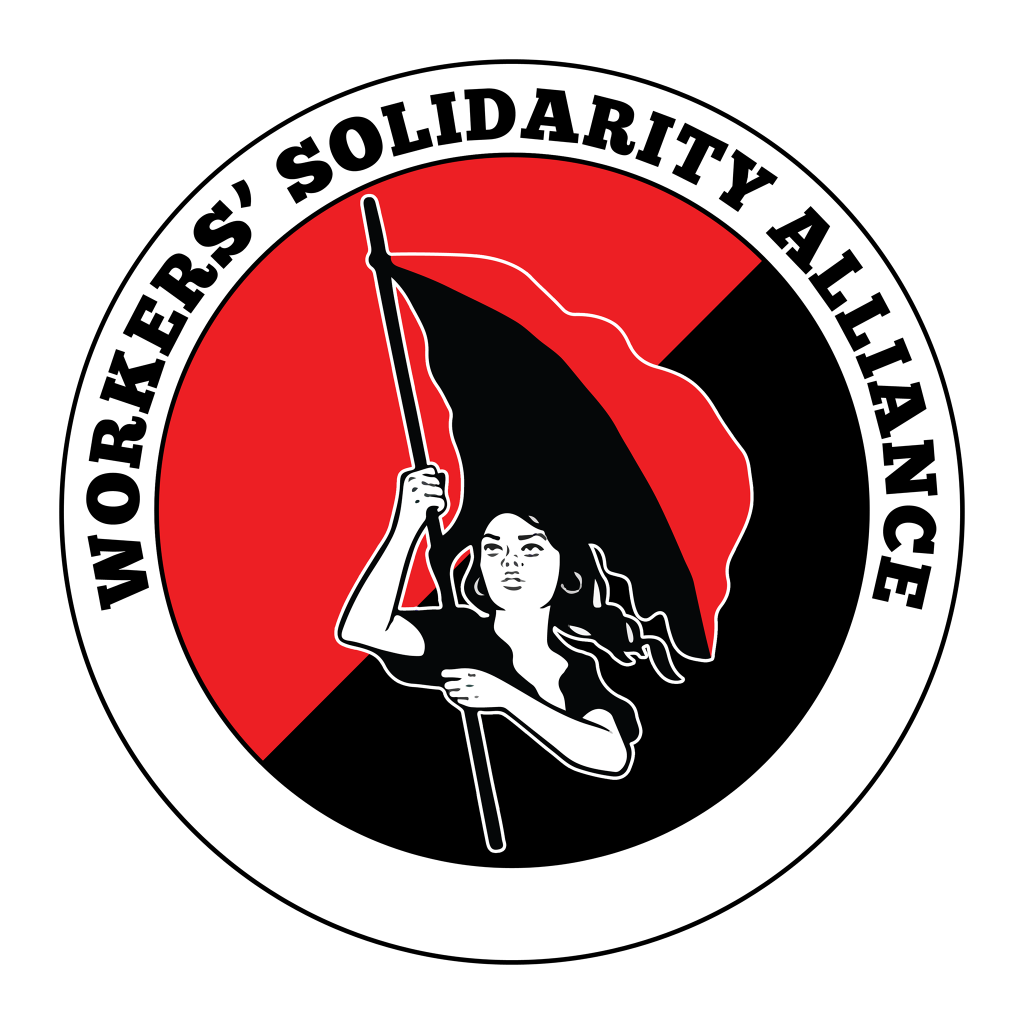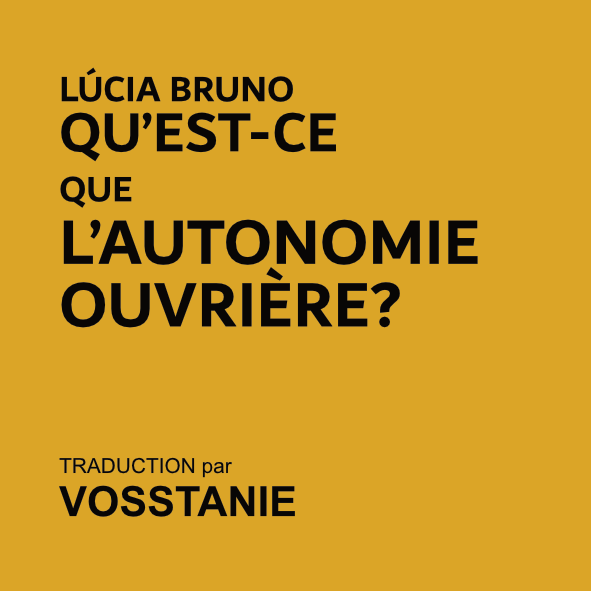Some of us were also members of IWW, and without doubt we loved IWW, but also craved a worker’s organization that saw the social revolution as the alternative to the State. – Sachio Ko-yin
By Sachio Ko-yin
I was asked to write a few words about Workers Solidarity Alliance, and my own experience in it. I love learning about other radical national level organizations, meeting with members, and sharing how we empower our memberships—how we nurture our internal democracies. So, in this spirit, a few words about WSA.
WSA is an Anarcho-Syndicalist organization, and currently has three local Branches, and has members across the country. Our statement of Principles « Where We Stand » and can be found on our website. Our magazine Ideas and Action ran in print from 1981 to 1997, and since 2010 has been an online magazine.
WSA was founded in 1984, and Ideas and Action became its official organ. As far as I know, the WSA is the US’ oldest continuous anarchist national organization. The WSA enjoys Friends Status with the International Workers Association, IWA/AIT, which was founded in 1922, and is the world’s oldest continuous anarchist international. The IWA/AIT’s founders included such luminaries as Rudolf Rocker and Augustin Souchy.
I believe historical continuity is meaningful. The impression many activists have of anarchists is that we don’t have the wherewithal for long term planning or infrastructure, that we often seem dramatic and ephemeral. I think there’s a reason why, when activists are new to anarchism, they’re inspired by the Spanish Revolution of the 1930’s and get a feeling of what is possible when anarchism is grounded in realities, in democratic process and infrastructure. It’s the heady mix of our high ideals of communal land and worker’s direct democracy, with actually participating in history. Organizations with institutional histories can be part of this message, that anarchists do have the wherewithal for long term planning and infrastructure.
About my own story with WSA, how I first encountered it and experienced it. In the early 90’s my anarchist comrades in NJ and I were moving toward Syndicalism, and we traveled to NYC to meetings of the old Libertarian Book club. This usually included my mother, who raised me with anarchist ideas, and my partner Melissa. At the LBC meetings we were able to connect with a number of organizations and campaigns. Among these, we encountered WSA and its NY/NJ local group. The fact that it was a national organization, an active section of the IWA/AIT, was what we were looking for.
In 1994, we attended WSA’s National Conference in NYC, and we loved it. We met delegates from around the country and witnessed the democratic decision-making process. Ideas and Action was full of inspiring actions and analysis for us. We soon participated with WSA in local solidarity campaigns, including protests for the rights of Nigerian anarchist workers facing repression.
At that time some of us in NJ were also members of IWW, and without doubt we loved IWW, but also craved a worker’s organization that saw the social revolution as the alternative to the State. From the perspective of our group at that time, while there is a rich tradition of anarchists involved in IWW, IWW did not take a position on the state, leaving this open and undefined. By contrast, we wanted to have this ideal of self management and opposition to the state right up front, inscribed into our day-to-day resistance to capitalism. WSA offered a community where this ideal was explicit from the start.
In 2017, I was a co-founder of the Philly Metro WSA Branch, and this has been a rich time of reconnecting with the Syndicalist movement. Being part of a local branch has helped ground the work of local activism. At branch meetings we report back on our ongoing projects, as well as report back from the goings on of regional WSA meet-ups, national level business, and updates on the International IWA/AIT. Grounded in the local, we can feel the full sweep of what it means to participate in a national organization that enjoys Friends status with the International.
We’ve participated in local labor campaigns, Occupy ICE (against the child separation at the Border), and solidarity with BLM. Over the years we’ve also read and discussed the classics of the Anarchist Syndicalist tradition, and worked out for ourselves what syndicalism can mean in our phase of industry, the rise of the service sector, containerization and offshoring of manufacturing. We’ve examined the ways all of this is reflected in the changes in the social economic hierarchy. We’ve worked through our understanding of how our work must be intersectional and clarified how social operations such as racism, sexism, and queer-phobia infect our work-lives, and keep us separated and exploited under capitalism.
I know each of us has our own story of surviving the pandemic, and for each of us our story is bound up with what it has meant in the industries for which we work. Speaking for myself, the exploitation of the job market has been deadly; surviving has been backbreaking and extremely unsafe. Family members have fallen ill and some have passed away. Just trying to keep my family safe has been most crucial. Trying to also engage in resistance to capitalism through all of this has been a struggle.
My friendships in WSA across the country have helped me stay active in moving through this dark time. In national meetings of our Labor Committee, members across the country have shared the stories of their local areas’ responses to the virus and its impact on their local economies; and what it has meant for them to be essential workers or unemployed, targets both of the virus and the needs of industry.
Once a week we’ve gathered by Zoom for Write Nite, to work together side by side on articles for Ideas and Action and share our research and organizing experiences. The human element of getting to share our current experiences of the virus in our different geographic areas has been powerful, fueling our study and writing, and encouraging each other to stay active, to garner the strength to resist. Looking back, in some ways for all our projects, I feel that this human element of friendship and mutual support during the pandemic is the most revolutionary of all. I am thankful.
For more information about WSA, Ideas and Action and the IWA/AIT, please follow the links below
WSA – Where we stand
WSA – Ideas and Action
Catégories :AIT, Anarcho-syndicalisme, États-Unis, IWW, Journal Liberté Ouvrière, Texte





